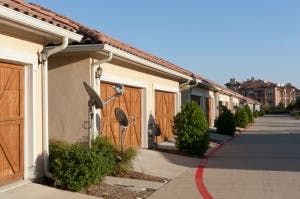Q: How do HOAs enforce general nuisance and annoyance rules?

![]()
Want to Find a Local Property Manager?
"[N]uisance, as a general term, describes the consequences of conduct, the inconvenience of others, rather than the type of conduct involved." (Copart Indus. v Consolidated Edison Co. of N.Y., 41 NY2d 564, 569 [1977] [citation omitted].) An element of a private action for nuisance is that the inconvenience caused by the conduct complained of be substantial. (Id. at 570; PJI 3:16 [2006].) To prosecute a private claim for a public nuisance, a plaintiff must prove particular damage resulting from the public nuisance. (Van Cortlandt v New York Cent. R.R. Co., 265 NY 249, 264 [1934]; PJI 3:18.) There is no evidence that the garage sale either substantially inconvenienced other condominium residents or caused them particular damage.
The judge explained in the ruling that a condominium association bylaw duly agreed to by the member owners in accordance with the operating agreement that specifically banned garage sales would be easily enforceable. Indeed, such would be well within the purview of the Association’s power. Traditionally, courts have given wide latitude to homeowners associations and condo associations as ‘quasi-government bodies,’ even upholding the right to levy fines and place liens on properties, provided they are enforcing rules that have been duly adopted by proper procedures, in accordance with the community’s own bylaws and governing documents to which all homeowners buying into the association agree.
Furthermore, courts do not like to be placed in the position of having to substitute the judgment of uninvolved magistrates for the judgment of homeowners’ boards intimately familiar with their own neighborhoods.
The decision and concurrence in the landmark Levandusky vs. One Fifth Avenue Apartment Corporation goes into great detail about the appropriate level of scrutiny to apply in homeowner vs. association disputes, for those who are interested in how the sausage is made, as this particular decision is frequently cited in subsequent decisions.
But vague prohibitions of things like “nuisance” can be problematic. If an HOA or condo association wants to enforce a rule against nuisance, they must not only prove that the act that created the nuisance actually occurred, but they have the additional burden of being able to show that other owners and/or residents were, in fact, substantially affected by the act.
If you are on the Board of Directors of an association, and faced with a decision about whether to ‘go to the mat’ by taking a member of your own association to court over a relatively small matter, be sure that you are standing on the firm
Author Bio
Writing about personal finance and investments since 1999, Jason Van Steenwyk started as a reporter with Mutual Funds Magazine and served as editor of Investors’ Digest. He now publishes feature articles in many publications including Annuity Selling Guide, Bankrate.com, and more.